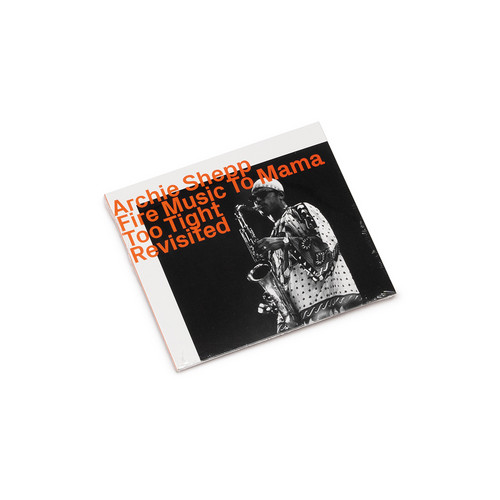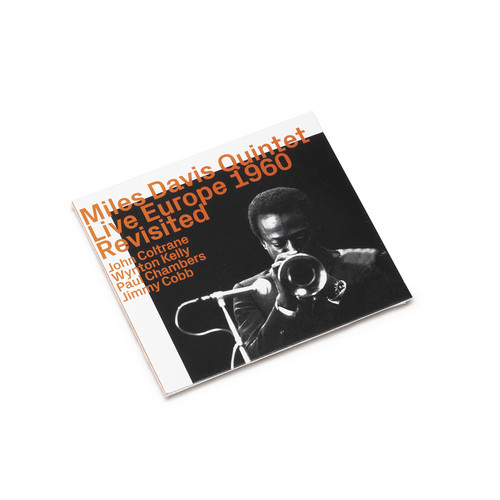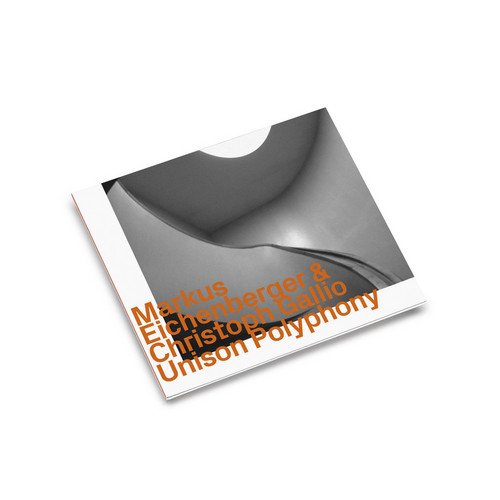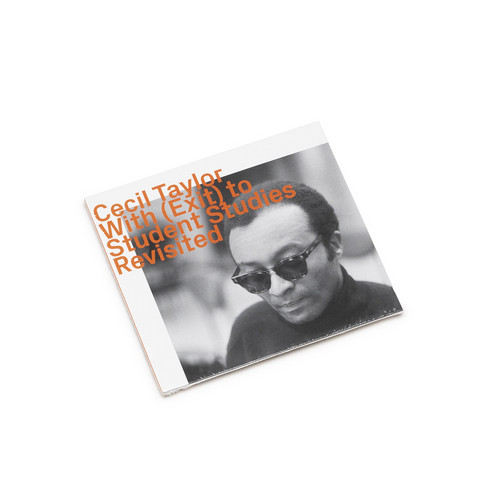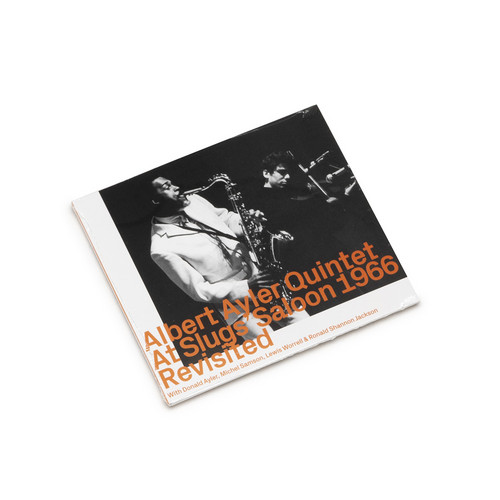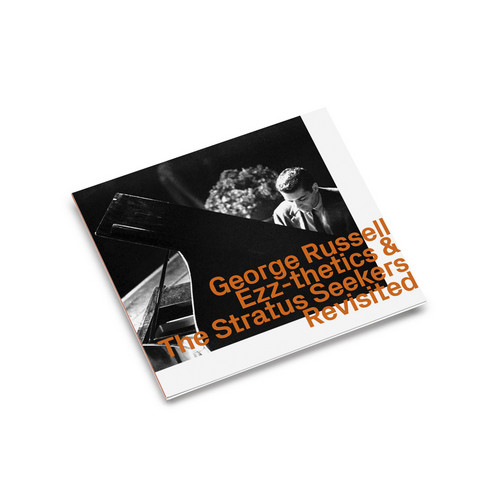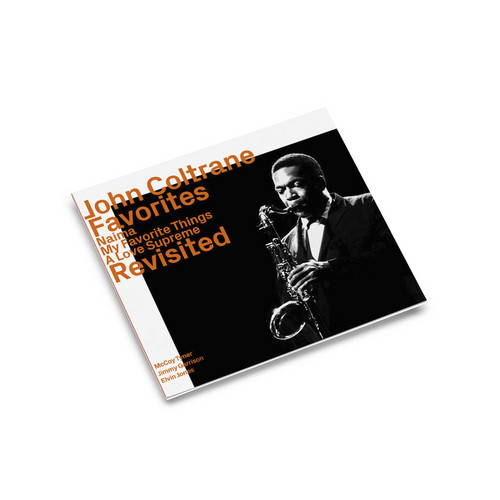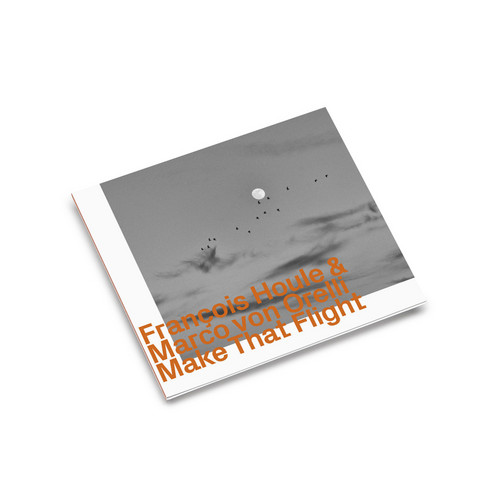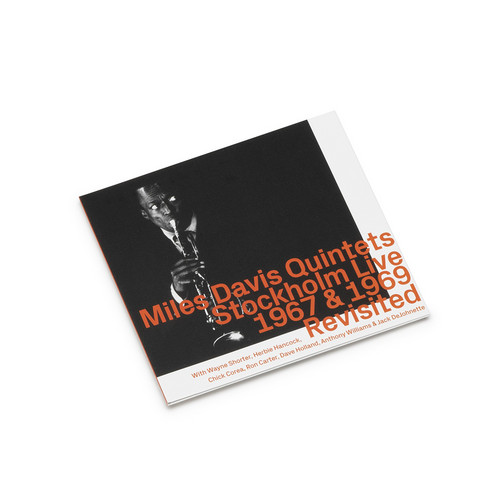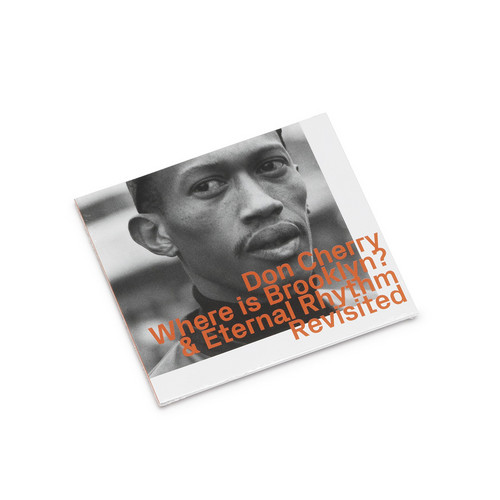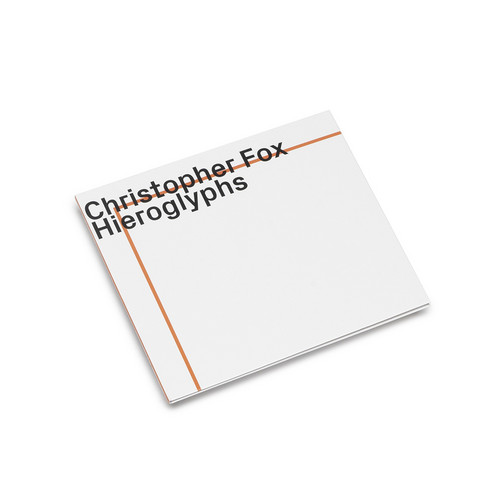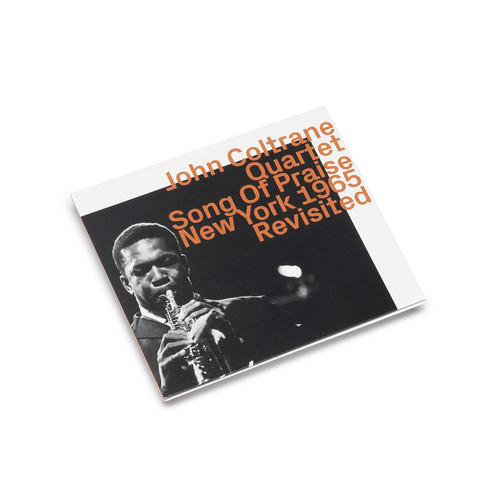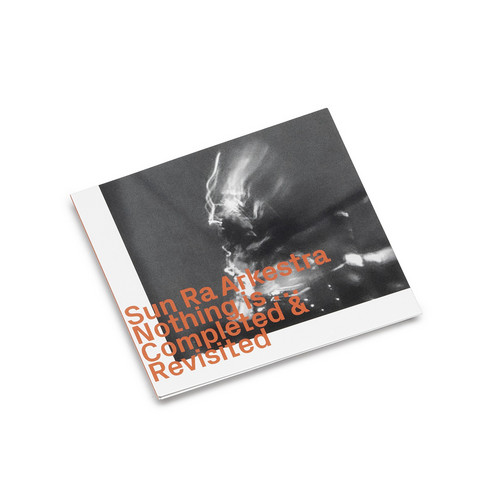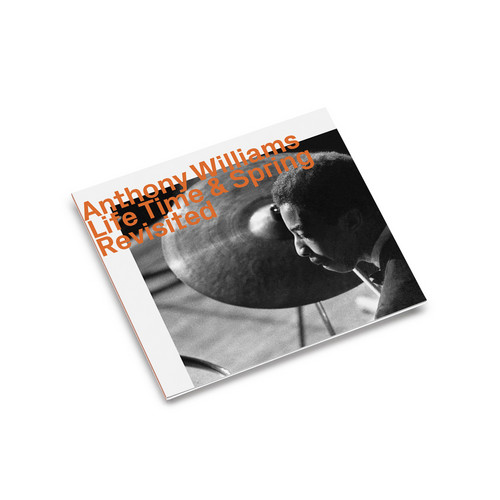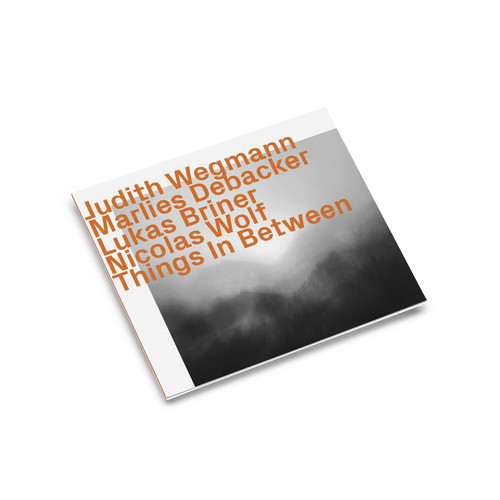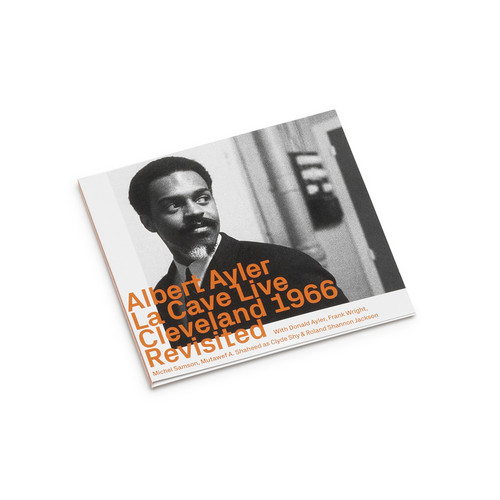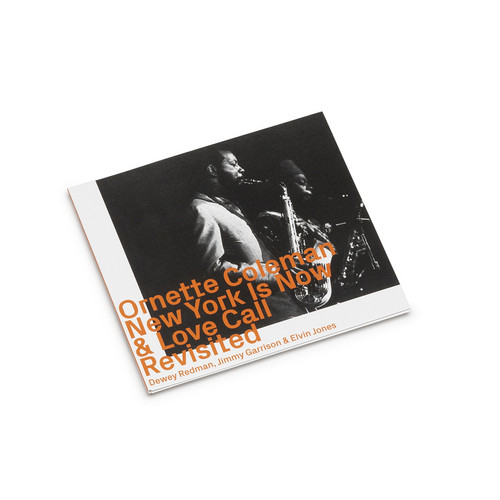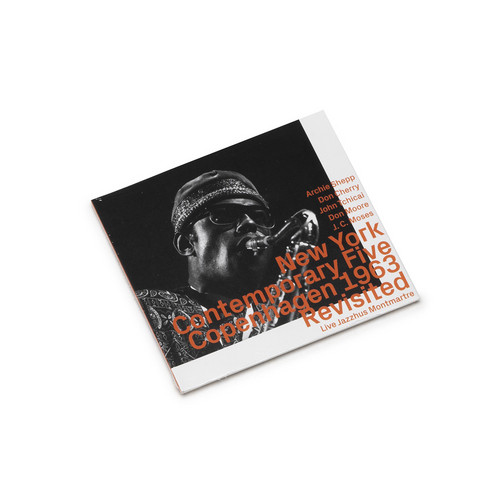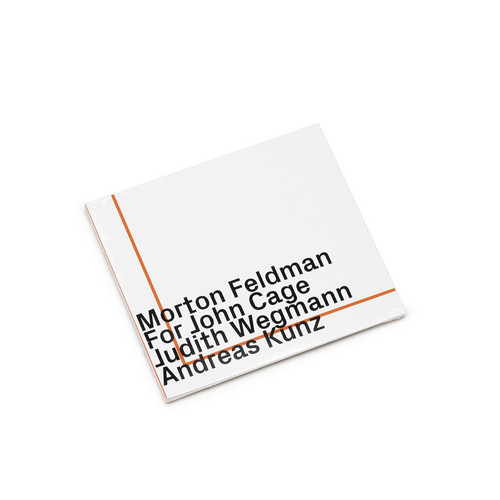★ezz-thetics
Fire Music To Mama Too Tight, Revisited
Temporary Super Offer! 'Jost may have had Fire Music and Mama Too Tight in mind when he suggested that by 1965 Archie Shepp spoke “basically two musical languages whose grammar and syntax had hardly anything in common.” This reflected the commentaries’s insistence that a chasm existed between free jazz and mainstream jazz practices, and, implicitly, between the New Wave in Jazz and the New Breed led by James Brown. What was revolutionary about Shepp’s music is that it rejected the underlying bin…
Live Europe 1960 revisited
Temporary Super Offer! 'The Miles Davis Quintet of early 1960 was an endangered, embattled entity. Davis and his frontline foil John Coltrane had been drifting apart stylistically and temperamentally for months. United in the embrace and exploration of modal devices on the trumpeter’s seminal Kind of Blue album released the previous summer, bandleader and sideman were increasingly at odds as to where to go next with the celebrated innovations.' - Derek Taylor
Unison Polyphony
Temporary Super Offer! Christoph Gallio and Markus Eichenberger, both born in 1957, have known each other since the early eighties and have played together a lot during this time, listening to music, visiting bars and occasionally taking a dip in the Rhine. At some point, their paths got lost until they crossed again in 2018 to regularly sound out their musical languages and create something new. Their performance at the "40 Years of WIM Zurich" festival remained unforgotten for many.
Eichenber…
With(Exit) To Student Studies, Revisited
Temporary Super Offer! 'Cecil Taylor’s whole career was a wave-front of exploration. The analogy with light is apposite enough. He evolved so fast most of us never quite caught up and relied instead on a few safe generalisations that momentarily applied around 1962 and only occasionally thereafter. Taylor rarely referenced the space programme, and admitted towards the end of his life that he had found the moon landings “banal”. Like Sun Ra, he was a cosmonaut of sound, breaking free of gravity a…
At Slugs’ Saloon 1966, Revisited
Temporary Super Offer! 'Among the jazz innovators, Albert Ayler is still considered a solitary figure to this day. From 1964 on he pursued his vision with firm determination. Like no other artist he used well-known melodies from military, marching, blues, gospel and minstrel show music as a starting point, and from these biographical earworm references he set out with the greatest expressiveness into an unconditionality that caused productive disturbance, which his music still does. On the one h…
Ezz-thetics & The Stratus Seekers Revisited
Temporary Super Offer! On Ezz-thetics: Eric Dolphy alto saxophone, bass clarinet, Don Ellis trumpet, David Baker trombone, George Russell piano, Steve Swallow double bass & Joe Hunt drums. On The Stratus Seekers: Paul Plummer tenor saxophone , John Peirce alto saxophone, Don Ellis trumpet, David Baker trombone, George Russell piano, Steve Swallow double bass & Joe Hunt drums. The six albums that George Russell recorded in just two years – starting with Sextet at the Five Spot in September 1960 …
Favorites Revisited
Temporary Super Offer! 'The studio side of Coltrane’s catalog has greater consistency in terms of caliber of aural presentation, but fewer occasions for extended improvisation and creation. This is particularly evident in an analysis of the recordings made of his Classic Quartet comprising pianist McCoy Tyner, bassist Jimmy Garrison and drummer Elvin Jones. An ensemble that was a work in progress well before it was a finished cohort, Coltrane’s most fertile band was also best suited to the hot h…
Make That Flight
Temporary Super Offer! 'Even a cursory revisiting of Houle and von Orelli’s previous recordings confirms that the stark forum afforded by a horn duo strips their music to its essentials, their shared ability to make unorthodox forms and materials sing and dance being the most salient. Fresh, distanced, and potentially transformative perspectives abound on this album, and not just about the music of any other artist; but, more importantly, the tug and pull between the continuity represented by tr…
Miles Davis Quintets Stockholm Live 1967 & 1969 Revisited
Temporary Super Offer! 'Was there more than one Miles Davis? Could he be both the Prince of Darkness and the purveyor of cool? A drug addict and an athletic boxer? A hip bebopper and a protohippie? A flamboyant dresser and a shy vulnerable soul? A brutal misogynist and an insecure romantic? The answer is yes, and yes. Miles Davis was both a creator and a destroyer. His chameleon-like nature can be explained by the times in which he lived and created his art. These live recordings in Stockholm, S…
Where Is Brooklyn? & Eternal Rhythm
Temporary Super Offer! These sessions were recorded exactly two years apart, in early November 1966 and 1968 (both were released in 1969). While they can’t be called “bookends” by any means, they do bracket a remarkable period in Don Cherry’s musical evolution, on his journey from the more strictly jazz environments, as adventurous as they were, of Ornette Coleman, Albert Ayler and others, to a philosophy that embraced many non-Western traditions. While these included various African forms, espe…
Hieroglyphs
Temporary Super Offer! "‘Hieroglyph’ is a word that history has gradually prised away from its linguistic roots as the Greek term for sacred carvings. Over time it came to be associated principally with the enigmatic symbols found in Egyptian burial sites and because these symbols resisted translation for so many centuries the word hieroglyph became a synonym for incomprehensibility. It was the discovery of an artefact – the socalled ‚Rosetta Stone‘, containing both hieroglyphs and parallel text…
Song Of Praise, Live New York 1965
Temporary Super Offer! "These Half Note recordings from March 26 and May 7, 1965, two dates from an extended stay at the club, were captured as a radio broadcast. ezz-thetics has re-sequenced the music here to demonstrate Coltrane’s approach to incorporating all his inventions into a performance, while also mapping a future to his music." – Mark Corroto
Producers note: "We have re-sequenced these tracks to allow the listener to become part of the development of the music and to follow J…
Nothing Is...
Temporary Super Offer! "Attempts to dismiss Sun Ra as an “outsider” artist, an eccentric who made strange claims, are always own goals. Of course he was an outsider. That was precisely his point. And not just an outsider. He came from so far away we could not imagine it. But he also came from right inside American culture and was deeply shaped by it. There is perhaps no more representative an American artist of the modern period. If the Saturn V rocket was the symbol one kind of hegemony, govern…
Life Time & Spring (Revisited)
Temporary Super Offer! "Life Time posited a radicalism quite different from the other watershed recordings of 1964. Anthony Williams had an overt, unconventional approach to form, accentuated by the time constraints of a LP side and the various configurations he employed... By the time the 19-year-old Williams returned to Van Gelder Studio to record Spring with Hancock, Peacock, Rivers, and Shorter, the avant-garde was ascending... He retained some of the parameters
of Life Time ..." - Bill Sho…
Decibel
Temporary Super Offer! Cat Hope is a composer, performer, songwriter, noise artist and researcher. She is lautist, experimental bassist and artistic director of Decibel new music ensemble, which led to her being awarded the Australian APRA|AMC Award for Excellence in Experimental Music. Decibel are a new music ensemble that focus on the integration of acoustic and electronic instruments in chamber music performance, founded in Western Australia in 2009. They are world leading interpreters of gra…
Things In Between
Temporary Super Offer! "This album features the relatively unusual quartet line-up of two pianists and two percussionists. Equally unusual, though less so than it once was: the leader
on this date, pianist Judith Wegmann, is equally at home in improvisation and composed music. She's a composer, and an interpreter of composed music – her recording of Morton Feldman's Triadic Memories and For John Cage appeared recently on this label. But she's also a free improviser who draws on the tradition o…
La Cave Live, Cleveland 1966
the first authorized release by permission of the Estate of Albert Ayler of the two concerts played at La Cave, Cleveland on April 16 & 17, 1966. Remastered for best possible sound of these under difficult technical circumstances recorded performances.
New York Is Now & Love Call Revisited
Temporary Super Offer! New York is Now! and Love Call are rarely mentioned in surveys of Ornette Coleman’s music, and they are often glossed over when they are cited…. Even in commentary focusing on Coleman’s recordings for Blue Note between 1965 and ‘68, these albums tend to be overshadowed by the two volumes of At the “Golden Circle” Stockholm... However, these last sessions before Coleman’s departure for Impulse! are pivotal, influential albums that merit reassessment. – Bill Shoemaker"Alto s…
Copenhagen 1963 „Revisited“
Temporary Super Offer! Despite persisting labeling of its music as avant-garde, The New York Contemporary Five played unthreatening contemporary jazz almost as often as it explored more daring materials. Two of Thelonious Monk’s loveliest melodies – “Monk’s Mood” and “Crepuscule with Nellie” – were embedded into their sets, aswell as three of Ornette Coleman’s more accessible, swinging vehicles, “O.C.,”“When Will the Blues Leave,” and “Emotions.” These pieces provided a perspectiveof contemporar…
For John Cage
Temporary Super Offer! John Cage was an evangelist for a new mode of listening in which we would listen to everything with the same attention that we bring to music. For John Cage proposes instead that we listen to this music as if it were everything. While these two instruments are playing there is nothing else, just a violin and a piano. Even the process of remembering, normally so important in helping us make sense of what we hear, is altered: the ‘tenuous’ rhythms of For John Cage articulat…
